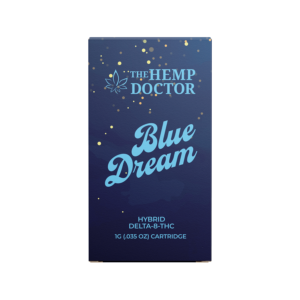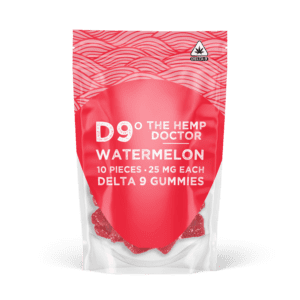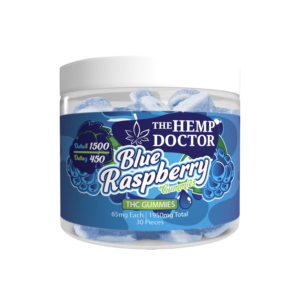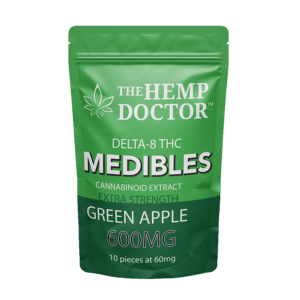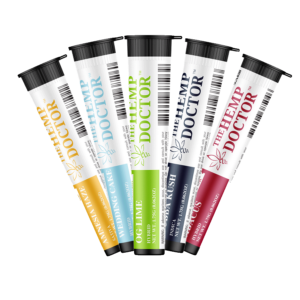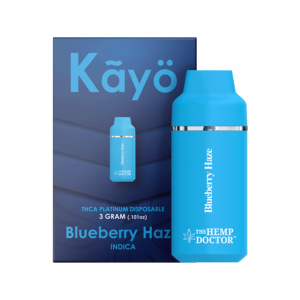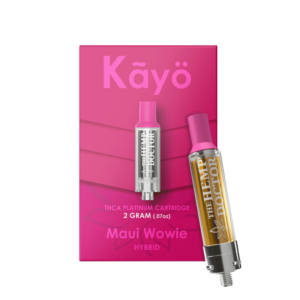In 2019, researchers in Italy uncovered something truly mind-blowing: a compound called THCP that binds to your body’s cannabinoid receptors 33 times more effectively than traditional Delta 9 THC. That’s right—33 times! It’s no wonder cannabis scientists, consumers, and manufacturers alike are eager to learn how to get THCP for themselves.
If you’re searching how THCP is made, its nature, and ways to commercially get this powerful cannabinoid, this guide will tell you everything you need to know.
Let’s dive right into it.
What Exactly is THCP? (And Why It Matters)
When we talk about THCP, we’re referring to tetrahydrocannabiphorol. It’s a naturally occurring cannabinoid found in cannabis plants, but only in extremely small amounts. How small? In most strains, it’s so tiny that it’s practically undetectable without specialized lab equipment.
But what makes it so fascinating isn’t just its rarity—it’s its molecular structure. Specifically, THCP has a longer alkyl side chain than traditional THC (specifically a seven-term alkyl side chain). This small tweak allows THCP to latch onto your CB1 and CB2 cannabinoid receptors in ways THC simply can’t match. That longer tail gives it a much stronger “grip,” leading to exponentially more potent effects.
Researchers were stunned to find that while THCP is a naturally occurring cannabinoid, its intense power could explain why some cannabis strains hit users much harder than laboratory THC levels would suggest.
How Do You Get THCP in the First Place?
Let’s get practical: How do you get THCP if it exists in only a small amount in nature? Here’s the truth: extracting it directly from cannabis plants isn’t viable at scale. Instead, THCP is typically derived from hemp using cutting-edge science.
Here’s a breakdown of the process:
1. Extracting CBD from High-Quality Hemp
Everything starts with high-quality hemp. The 2018 Farm Bill legalized hemp production across the United States, provided that plants contain no more than 0.3% Delta 9 THC. Today, farmers carefully cultivate CBD-rich hemp to serve as the starting material for many rare cannabinoids.
Producers then use sophisticated extraction techniques—like supercritical CO₂ extraction—to separate out pure CBD isolate. This ensures no unwanted byproducts like pesticides or heavy metals taint the final result.
2. Converting CBD into THCP
The magic happens in the lab. Skilled chemists manipulate the isolated CBD using chemical reactions designed to alter its molecular structure. They extend the molecule’s alkyl side chain to match that of THCP, unlocking its powerful potential.
This process requires extreme precision. The temperature, pressure, and chemical environment must be carefully controlled at every stage. High-quality manufacturers constantly monitor the reaction to prevent impurities from forming.
3. Purifying and Testing the THCP
Once synthesized, the THCP must be purified. Labs use advanced methods like High-Performance Liquid Chromatography (HPLC) to isolate THCP from any residual byproducts. Only after extensive purification does it become safe enough for human use.
Of course, the final material must also be lab tested to ensure potency, purity, and safety. Reliable producers provide Certificates of Analysis (COAs) from third-party labs, verifying that their THCP is free from contaminants and accurately labeled.
How THCP Gets Formulated into Products
Now that you have a pure batch of THCP, what’s next? Manufacturers blend it into consumer-ready products!
Here’s how it happens:
Blending THCP with Terpenes and Other Cannabinoids
THCP rarely works alone. To optimize the effects, producers combine it with flavorful terpenes and sometimes other hemp derived cannabinoids. This approach enhances not just potency, but also the flavor and therapeutic benefits through something called the “entourage effect.”
Different terpene profiles can craft tailored experiences—uplifting, relaxing, creative, or euphoric!
Creating Popular THCP Products
THCP vape products are among the most popular ways to experience the compound. Why? Inhalation provides a near-instant onset, giving users quick feedback on the effects.
Most THCP vapes blend THCP with other hemp cannabinoids or terpenes to balance potency and flavor. Always start with 1–2 small puffs and wait before hitting it again. Trust us — a little goes a long way here!
Edibles
Prefer longer, drawn-out experiences? THCP edibles (like gummies and chocolates) offer slower onset times but longer lasting effects. Because THCP must pass through your digestive system, effects may take 30–90 minutes to fully kick in, but the payoff is a sustained, deeply relaxing experience.
Tinctures and Oils
Tinctures allow you to fine-tune your dose with precision. Simply drop the desired amount under your tongue (sublingually) for relatively fast absorption, or add it to food for edible-style consumption.
Tinctures are great for users looking for customized control over their THCP journey.
Topicals
Though less common, THCP-infused creams and balms exist for targeted relief.
Finding a reliable THCP vape or edible product means ensuring it’s third-party tested, clearly labeled, and responsibly dosed!
Is THCP Legal? Here’s the Scoop
Thanks to the 2018 Farm Bill, cannabinoids derived from hemp are federally legal as long as they contain no more than 0.3% Delta 9 THC. Since THCP is synthesized from hemp-based CBD, it’s considered compliant at the federal level.
However, states can and do regulate cannabinoids individually. Before buying or consuming THCP, it’s smart to check your local laws to avoid any unpleasant surprises.
Another important note? Some THCP products may show up on a drug test. Since drug tests typically target THC metabolites—and THCP is structurally similar—it can trigger a positive result. Be cautious if you’re subject to testing!
Does THCP Show Up on a Drug Test?
Here’s the honest truth: Yes, it very well might.
Even though THCP is different from Delta 9 THC, it still closely mimics its structure and behavior. Standard drug tests look for THC metabolites — not necessarily the THC molecule itself.
Since THCP metabolizes similarly, using THCP products could cause you to show up on a drug test that screens for cannabis use.
If passing a drug test is critical for you, it’s safest to avoid THCP (and, honestly, most other hemp-derived cannabinoids that metabolize like THC).
Why THCP Hits Harder Than Traditional THC
It all comes down to molecular structure. Remember, THCP has a longer alkyl side chain than traditional THC. That’s why it binds 33 times more effectively to your CB1 receptors.
The CB1 receptor is primarily located in your brain and central nervous system, regulating mood, appetite, memory, and more. When a molecule like THCP grabs hold that much tighter, the resulting psychoactive effects are considerably stronger—and often longer-lasting.
For many users, that means longer-lasting effects after vaping or eating a THCP product compared to standard THC products. However, it also means that new users should start very low and go very slow to avoid overwhelming experiences.
Where Can You Find THCP Products?
If you’re wondering where to find THCP, the good news is you have options—just not everywhere. Because THCP requires advanced lab synthesis and purification, it’s not as widely available as other potent cannabinoids like Delta-8 or HHC.
Here’s what to look for when shopping:
- Third-Party Testing: Products should be fully lab-tested for potency and purity.
- Transparency: Reputable brands clearly label THCP content, ingredients, and suggested serving sizes.
- Farm Bill Compliance: Ensure your product comes from hemp with less than 0.3% Delta 9 THC.
- Good Reviews: Real user experiences often provide the most honest insight into quality and effectiveness.
And remember: whether you’re looking for a THCP vape, an edible, or tincture, finding a brand committed to safety and transparency is crucial.
Safety Tips for Using THCP
THCP’s potency means responsible use is absolutely essential. Here are some actionable tips to enjoy THCP safely:
- Start Low and Go Slow: Begin with the lowest dose possible, especially if it’s your first time. Increase only if needed.
- Read the Lab Reports: Make sure the product is lab-tested and contains no hidden contaminants.
- Stay Hydrated: Dry mouth is common. Water is your best friend.
- Be Mindful of Setting: Choose a safe, familiar environment when trying THCP for the first time.
- Know Your Tolerance: Even heavy THC users report that THCP feels vastly stronger. Respect its strength.
Final Thoughts: How Do You Get THCP?
At the end of the day, how do you get THCP? It takes a delicate balance of cutting-edge science, superior farming practices, and rigorous quality control. From high quality hemp extraction to lab-based chemical transformations, creating pure, potent THCP is no small feat!
THCP is reshaping what’s possible in cannabis science. If you’re ready to introduce a next-level experience to your customers, it might just be time to explore what THCP has to offer. In the meantime, check out great hemp product finds with The Hemp Doctor Wholesale. Catch recurring discounts and exclusive promotions on top of already unbeatable wholesale pricing!
